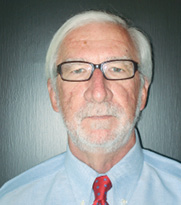Once the sales department culture is set in motion and the sales department philosophy has been established and agreed upon, the next step in managing the wholegoods department is identifying and embracing the responsibilities of both the sales manager and the wholegoods sales personnel.
The sales manager’s responsibilities, which will be the subject of this column and a few to follow, include: hiring the right person, clarifying objectives, tasks and responsibilities of the sales staff, designing and implementing a motivating compensation system, growing the department profitably and optimally managing those assets with which he/she has been entrusted.
A previous column addressed the attributes that should be sought when hiring or replacing a salesperson. Those characteristics can be summarized as follows. A modern day salesperson in the equipment industry must be a high energy, enthusiastic overachiever who is goal oriented, competitive by nature, motivated by money and willing to take direction while positively embracing the latest technology.
While a college degree may be helpful — simply to demonstrate a quest for knowledge and a desire to learn — it should not be the deciding factor when hiring a sales person.
The second area of responsibility for a sales manager is to clarify the objectives, tasks and responsibilities of the sales staff, which in turn will require segmenting the staff into experienced or inexperienced personnel.
Experienced personnel should be required to formulate an annual sales plan that specifies targeted sales and gross margins for both new and used equipment based on the probability of customer purchase. As such, customers should be profiled and then stratified into A, B and C customers with a specified number of calls planned for each segment.
Similarly, experienced personnel should be required to complete and submit an annual sales call schedule as well as a weekly call schedule. Additionally, each weekly call schedule must identify the call objective as to why the salesperson “plans” to make the call.
Experienced personnel will no longer be permitted to sit in the dealership waiting for their next victim nor will they be permitted to simply drive around the countryside in “hopes” of finding a willing customer. Plans and objectives based on focus and discipline will replace after-the-fact marketing based on customer demand.
Experienced personnel should also be required to “conquest” sell a specified number of competitive customers. They should also be held accountable for scheduling and performing a specified number of field demonstrations.
Equally important, experienced sales personnel should be required to complete a “lost sales” report that explains in detail why a given sale was lost. The sales manager/dealer should periodically follow-up with customers to confirm the validity and accuracy of the lost sales report, especially for those sales personnel who have a propensity to identify price as the sole reason for their lost sales.
Make no mistake about it, while price may occasionally be the reason for a lost sale, it is far from being the number one reason why a customer decides to buy elsewhere.
When dealing with experienced sales personnel, the primary responsibility of a sales manager is to assist in the formulation of an individual sales plan and then provide timely follow-up and feedback. The sales manager’s responsibilities as they relate to inexperienced personnel are significantly different. Far too many sales managers and dealers, however, hire a new salesperson and then simply throw him/her the keys to a dirty pick-up truck while bellowing “GO SELL.” One week later, if not sooner, the new salesperson is asked: “Did you sell anything, YET?” Few will succeed in this type of environment.
The sales manager’s primary responsibilities with new salespersonnel are to see that quality calls are being made and relationships are being developed.
One way of doing this is to mandate a specified number of calls per week and to further require that they complete a specified number of comprehensive profiles for both dealership customers and territory prospects.
Furthermore, while experienced sales personnel should be required to complete a weekly call schedule, new or inexperienced sales personnel should be required to complete a weekly call report.
Sales mangers should stress that inexperienced sales personnel focus on effectiveness, or doing the right things, while experienced sales personnel should be encouraged to concentrate on efficiency, or doing things right. Similarly, experienced sales personnel should seek to minimize wasted time and effort while new personnel should strive to maximize results. As a neophyte, results are more important than the process and by concentrating on effectiveness, sales should materialize, which in turn will yield additional time to focus on efficiency.
Winston S. Churchill once stated that “the price of greatness is responsibility.” Highly successful sales managers relish and embrace their responsibilities of hiring and training new sales personnel, while concomitantly developing and improving the selling skills of experienced sales personnel.






